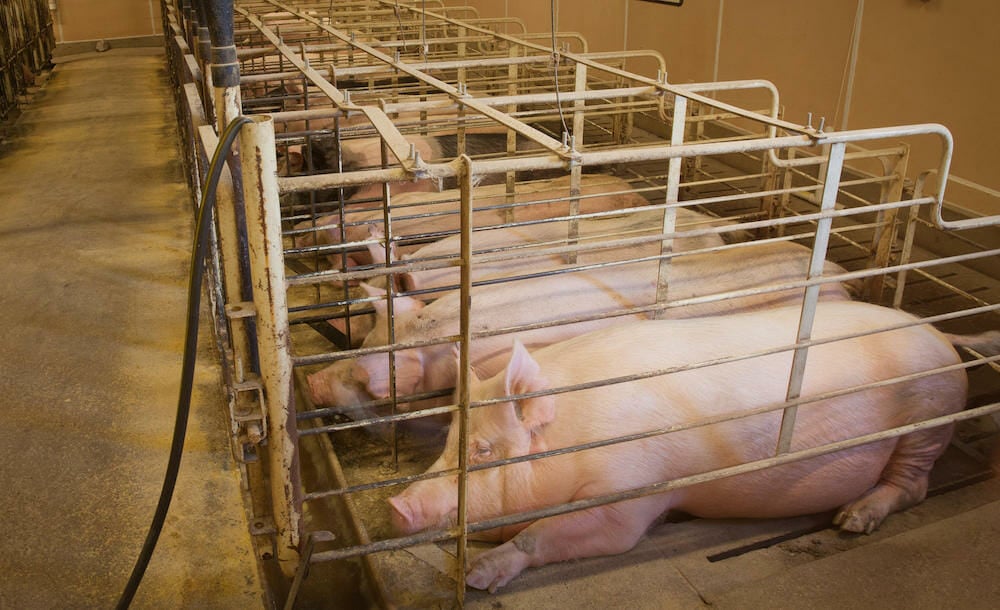California’s Prop 12, which many have hailed as the nation’s strongest animal protection law yet for farmed animals, is once again facing legal challenges from Big Meat.
The U.S. Supreme Court announced in March that it will hear a challenge from pork producers alleging that the landmark legislation – which aims to prevent atrocious suffering for pigs, chickens, and cows raised in extreme confinement – is unconstitutional and violates the commerce clause.
Those same allegations have been repeatedly shot down, first by a federal judge in San Diego, then by the 9th U.S. Circuit Court of Appeals.
The California Attorney General’s Office said it was “disappointed” by the development but also that staff “look forward to continuing to defend the constitutionality of Proposition 12,” according to Reuters.
Passed in 2018 by nearly 63 percent of California voters, Prop 12 bans the in-state sale of products from pigs, chickens, and cows bred and raised in conditions that don’t meet the state’s minimum space standards – specifically, metal cages so small that pigs can’t turn around and battery cages so tight that chickens can’t even spread their wings.
The amendment noted those changes would help end preventable animal cruelty “by phasing out extreme methods of farm animal confinement, which also threaten the health and safety of California Consumers and increase the risk of food-borne illness.”
Several large companies, including Hormel, agreed to abide by the new requirements. But the National Pork Producers Council (NPPC) and the American Farm Bureau Federation (AFBF) challenged the changes, alleging they violated the Constitution’s dormant Commerce Clause and would unduly burden out-of-state producers.
Several renown animal welfare and protection group, including the Animal Legal Defense Fund and the Humane Society of the United States, then intervened by becoming parties in the case and are represented by Bruce Wagman of Riley Safer Holmes & Cancila and Jeffrey Lamken of MoloLamken.
In the appellate court’s rejection of the challenge’s claims in July 2021, Judge Sandra Ikuta noted that Prop 12 only regulates in-state activity and that costs on farmers elsewhere were not “impermissible.”
“A state law may require out-of-state producers to meet burdensome requirements in order to sell their products in the state without violating the dormant commerce clause,” she wrote.
The 9th Circuit already had a foundation for that decision, having ruled similarly when it upheld California’s right to ban within the state the sale of foie gras from cruelly force-fed birds.
Prop 12 took effect Jan. 1, but the state is still fine-tuning the regulations and is still currently allowing the continued sale of animal products under the old rules.
The Supreme Court’s decision to hear the case means that justices will review Prop 12’s animal cruelty provisions and whether out of state producers may be required to change their practices if they want to sell their products in California. Arguments likely will begin after the court starts its new term in October, according to The Los Angeles Times.
We encourage our readers to help end the demand for excessive amounts of meat and dairy products – and the atrocious suffering of animals in factory farms – by choosing healthy and delicious plant-based options instead.

